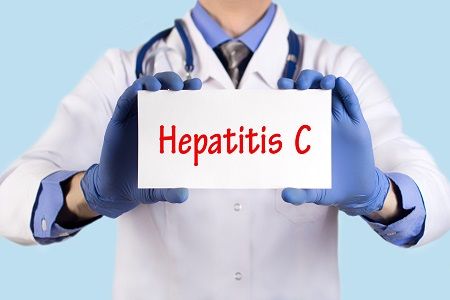High-Risk Portal Vein Hypertension Diminishes Once Hepatitis C Is Cured
Once hepatitis C is cured, patients' risk for portal vein hypertension drops – along with the accompanying complications.

Hepatitis C causes inflexible scar tissue to form in the liver, which prevents blood flow to the organ and causes portal vein hypertension. Since the deadliest complications of liver cirrhosis are due to portal hypertension, researchers from the Medical University of Vienna wanted to assess the risk of the condition after the infection is gone.
Now considered a curable disease, hepatitis C can be eradicated in about 95% of patients. However, the viral liver infection can bring on other complications — including cirrhosis and liver cancer. Portal vein hypertension is another potential condition that can develop from hepatitis C, but a new study published in the Journal of Hepatology discovered that the risk diminishes once the infection is cured.
“We aimed to investigate the impact of sustained virologic response (SVR) to interferon (IFN)-free therapies on portal hypertension in patients with paired hepatic venous pressure gradient (HVPG) measurements,” the authors explained.
- Related: Viral Hepatitis Is Now a Leading Cause of Death Worldwide
The team looked at 104 patients with portal hypertension (HVPG > 6mmHg). A total of 100 patients achieved SVR and 60 of them underwent HVPG and transient elastography after antiviral therapy.
HVPG significantly decreased with SVR from IFN-free therapies. This was apparent among all BL-HVPG including 6 to 9mmHg, 10 to 15mmHg, and 16mmHg and greater.
“This is a relief for patients, because it means they can stop taking drugs with unpleasant side effects and they do not need to undergo stressful check-ups quite as frequently,” a news release said.
It was noted that results were more heterogeneous in patients with BL-HVPG of more than 16mmHg. Also, people with more advanced liver dysfunction were less likely to experience the decrease.
“As a general rule, the probability of portal vein hypertension diminishing is greater, the earlier treatment was started,” first author Mattias Mandorfer, MD, said. “However, despite the promising results, we still strongly recommend that patients attend for check-ups, because portal vein hypertension does not diminish in all patients and, irrespective of whether it does or does not, there is a risk of developing liver cancer as a result of cirrhosis.”
Also on MD Magazine >>> DAAs Eradicate Hepatitis C, But Not the Risk for Liver Cancer